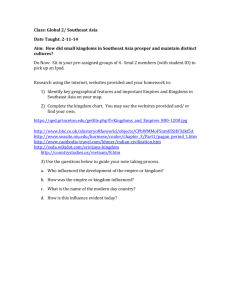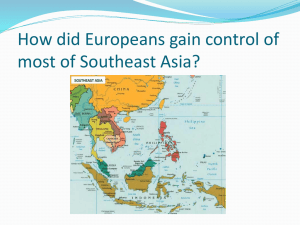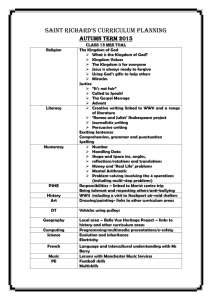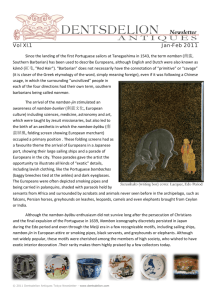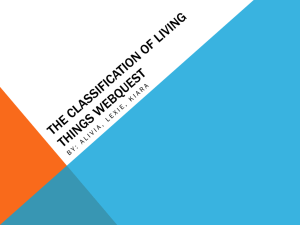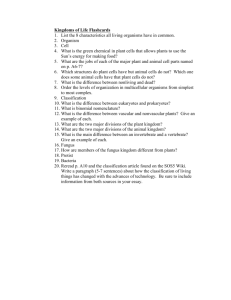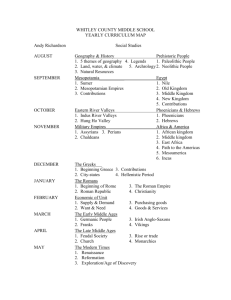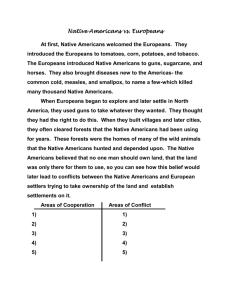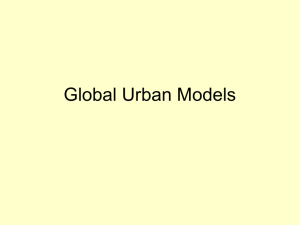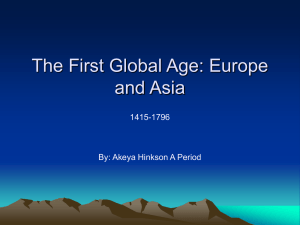Notes on Thai Kingdom (Siam)
advertisement
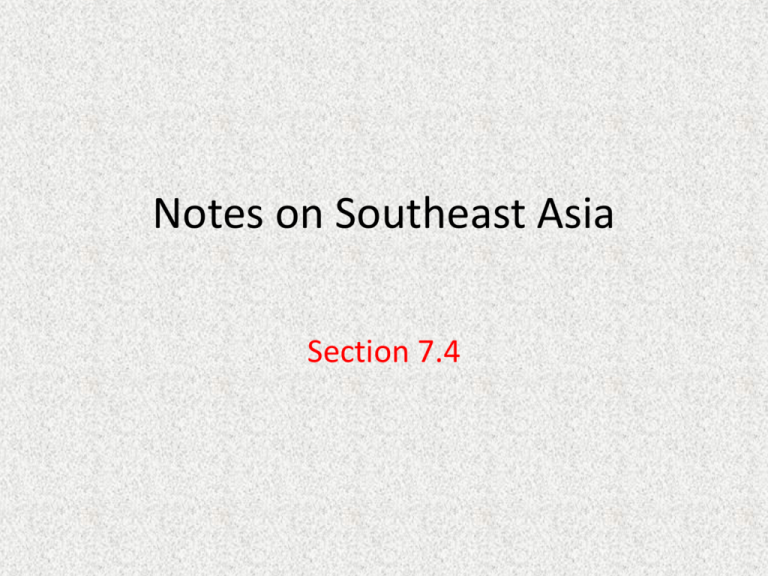
Notes on Southeast Asia Section 7.4 Europeans Carve out areas of influence in Southeast Asia Goals – Expand Trade – Acquire raw materials – Christianize Portugal • Controlled spice trade around islands in Southeast Asia • Spread Catholicism • Many natives resented Portuguese disregard for native culture and traditions. Spain • They colonize the Philippines because it was an excellent location for trade between Asia and Americas. • A Datus, or local ruler, pledged loyalty to Spain in return for keeping their regional power. • Most Filipino’s converted to Catholicism. Dutch • Broke Portuguese dominance of the Spice Trade. • They had more success because they only wanted to trade, not Christianize the natives • Their only goal was trade • Received trading rights in Java for helping locals rulers put down rebellion • Helped get English out of Indonesia France • Latecomers to exploration in Southeast Asia beginning around 1860s • Jesuits convert many natives to Christianity • They control Vietnam and Indochina Thai Kingdom Trailok (1448-1488) • King of Ayutthaya • Set up strong central government with separate civil and military branches • Required officials to live in the capital so he could oversee their work • Set up a class system- all people got land but higher you were in rank, the more land you received • Europeans had not yet begun exploration during his rule Phraya Chakri (1782-1809) • General who became king when rebels took over Taskin rulers • He moved the capital city to Bangkok • Established the dynasty that still rules Thailand • He was known as the King of Siam • Maintained policy of isolation from Europeans King Mongkut (1851-1868) • Makes European nations compete for trade rights • Felt western trade is a positive influence • Wants to modernize his kingdom • Encouraged people to study science and European languages • Struggled with the idea of how much change the kingdom should make Chulalongkorn (1868-1910) • Continued his fathers’ goals of modernizing the kingdom • Ended slavery • Encouraged his people to study abroad • Built railways and roads How the Thai Kingdom avoided European Conquest and Colonization Had a well-established kingdom Mid 1400s • Early kings developed strong religious traditions based on Buddhism and Hinduism • Maintained a strong central government • Required Government officials to live in the palace with the king • Set up a rigid class system • Banned all Europeans who tried to colonize in 1688 (Dutch and some Portuguese were allowed to remain as long as they just wanted to trade) • Thai Kingdom would remain closed to Europeans until 1826
